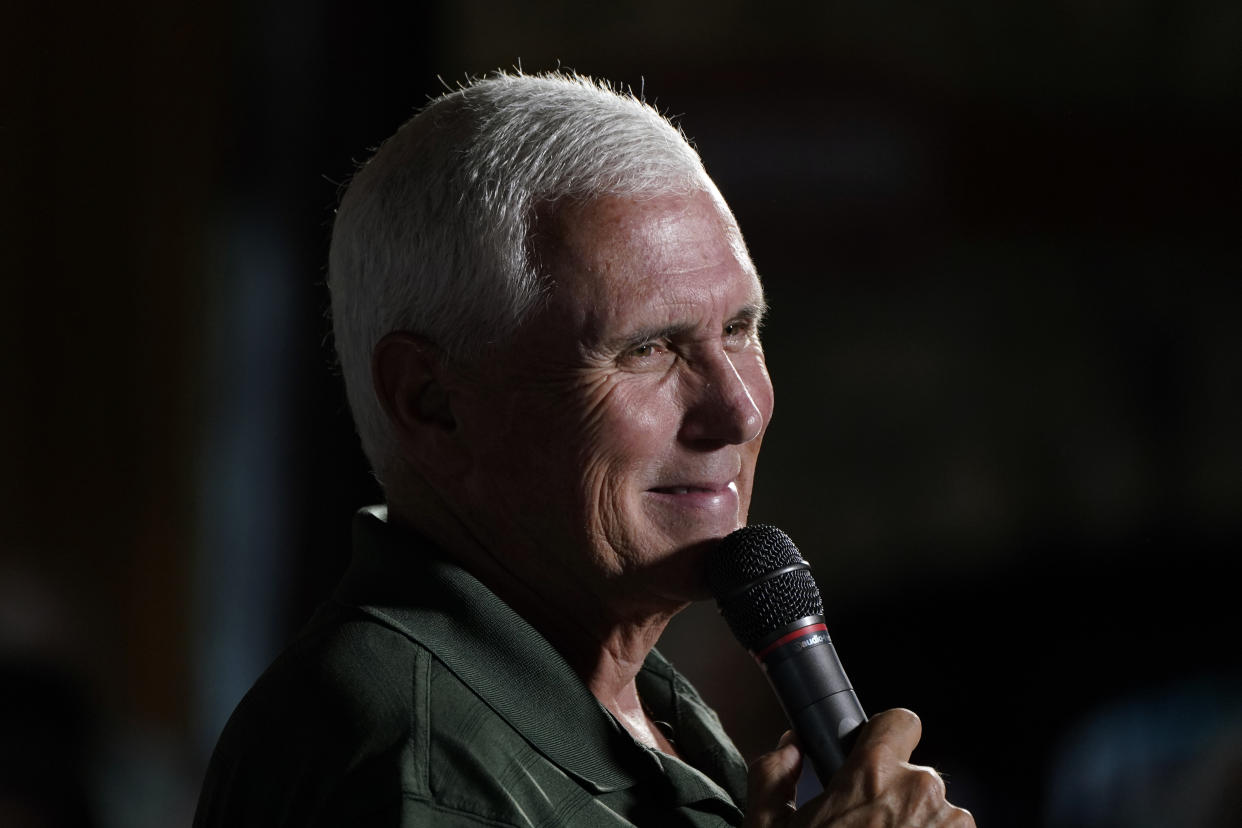Pence won’t endorse Trump

Mike Pence said on Friday that he would not endorse Donald Trump for president in 2024, breaking with the man who tapped him as vice president only to make him the target of an angry mob for his refusal to help with efforts to overturn the 2020 election.
“It should come as no surprise that I will not be endorsing Donald Trump this year,” Pence told Fox News.
The former vice president ran against Trump for the Republican nomination this cycle but bowed out of the race months before voting began after failing to gain any traction with voters.
Pence becomes the most prominent Republican to date to say he will not back Trump in the 2024 election. Other Trump skeptics, including Senate Minority Leader Mitch McConnell, have announced that they will back the presumptive nominee.
Republican Sen. Todd Young, also from Pence’s home state of Indiana, has said he will not support Trump’s candidacy.
Asked about his decision, Pence said it was driven by more than just anger over the riots at the Capitol on Jan. 6, 2021, during which Trump-backing protestors called for his hanging.
“I’m incredibly proud of the record of our administration,” said Pence. “But that being said, during my presidential campaign, I made it clear there were profound differences between me and President Trump on a range of issues. And not just our differences on our constitutional duties that I exercised on Jan. 6.”
Among those issues that Pence cited as Trump heresies included the national debt, his unwillingness to take a position on abortion restrictions and his recent reversal on banning Chinese ownership of the social media app TikTok.
“In each of these cases,” said Pence, “Donald Trump is pursuing and articulating an agenda that is at odds with the conservative agenda that we governed on during our four years.”
Pence declined to say how he would vote in November, save to rule out the current president.
"I'm gonna keep my vote to myself,” he said. “I would never vote for Joe Biden."
A Trump campaign spokesperson did not immediately respond to a request for comment.
Pence was never a serious factor in the presidential primary, dropping out in October amid weak polling and fundraising.
But his refusal to endorse Trump was reflective of a broader challenge the former president may have in winning over more traditionalist Republicans in November. A steady voice in the conservative movement for years as a House member and Indiana governor, Pence in 2016 endorsed Texas Sen. Ted Cruz in the presidential primary, before embracing Trump.
When he did, it helped to legitimize Trump’s smash-mouth politics and connect them to the party’s mainstream. And when Trump picked him to be his running mate, many members of the party’s old establishment were relieved.
But Pence's resistance to Trump’s effort to overturn the results of the 2020 election infuriated many in the party's base, crippling his political aspirations as he broke with the former president.
